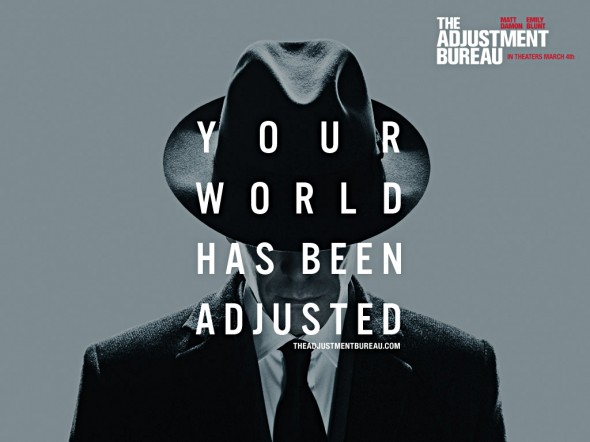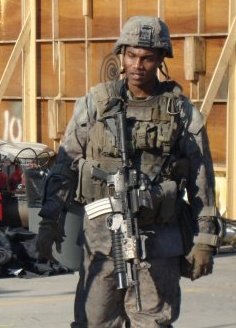“The Adjustment Bureau” is the first great film of 2011, a big and hugely entertaining film that takes on big ideas — love, free will, destiny, God, and the meaning of life. I was lucky enough to speak with writer and first-time director George Nolfi about being inspired by a short story from Philip K. Dick.
The movie is very different from “Adjustment Team,” the original story by Philip K. Dick. How did you approach adapting it for the screen?
The short story is just that, short. And it has a character at the center of it who is explicitly an everyman and so there isn’t much of a character to play there. It was going to need some adaptation one way or another. I was interested in a different thing than Philip K. Dick was. The story can be read from one angle was “Is this real or is this not real?” I wanted it to be — this thing happens and it spins the guy’s whole life on its head and all of his conceptions about the laws of physics and the universe are turned upside down. And he has to accept it because the evidence is just so overwhelming. What does that do to a person?
When my producing partner brought me the short story, I thought, what a great conception for a movie, the idea that fate is a group of people subtly pushing you back on plan. He also said, “You could do this as a love story. Your lead falls in love for the first time in his life and the adjuster comes along and says, ‘Sorry, there’s been a mistake. You weren’t even supposed to meet her.'” For whatever reason, my reaction to that was, “I think I know how to write that.” I didn’t know what I was going to put in the script but I thought the blending of genres would be fascinating and it would get me into territories of these much larger questions that every great system of thought — philosophical, literary, science-fiction, theological — this story would allow me to get there. There are not many stories that make big movies that take you to those questions.
It is unusual for a big-time movie with big-time movies stars to take on questions of life and fate and meaning and free will. I love the fact that it wasn’t focus-grouped away from engaging on those issues.
I optioned the rights and controlled them for six or seven years. I gave the script to Matt Damon and got some thoughts from him about his character. Neither of us thought his character was fully developed yet. I rewrote it to give his character more layers and more interesting things for him to play. And he said yes and we got it financed outside the studio system, from a group called MRC. When we then went to the studios we were able to say, “We have this movie and we have this movie star” and give them a fully-formed movie, so you don’t have this automatic development process where it’s nobody’s fault but things tend to get homogenized.
And Universal was really supportive, right from the beginning. They were on board with the notion of trying something that was really reaching. They were just like — let’s go for it. They thought people would leave the theater feeling satisfied even though we were blending genres. I had no interference while I was making the movie. In post-production they had just a few thoughts which in the Hollywood scheme of things would be considered minuscule. They had thoughts about the music but that was temp music anyway. I didn’t think the original ending worked and they agreed. So it was good people we were in business with and we were all pulling the same way. They were completely supportive of what we were trying to do, and so was Matt.
As a screenwriter, you’ve worked with directors but this is the first time you have directed. What did you learn from the directors you’ve observed?
I was on the set for all the movies I am credited on. And for “Oceans 12,” I knew I was basically going to be there the whole time. I said to Steven Soderbergh, “I’m interested in being director, are you cool with my occasionally ask you why you’re doing what you’re doing?” And he was extremely gracious to explain some of his thought processes about why he was choosing certain shots and so on. But the single biggest piece of advice he gave me that really stuck with me was, “In a perfect world you want to choose your shots and assemble to the movie so that the sound could go out and people could still follow the story.” That’s telling a story through pictures.
Clearly you listened to him! For a writer turned director, this is a very visual film. The effects are very significant and essential to the narrative.
As a writer making the leap to directing the first time, it was very important to me to make a film that was visually significant, to use visuals and music and sound as well as the performances of the cast to tell the story — those are the things you don’t have as a writer. I really wanted to do visual story-telling. I write scripts that are very visual but you can’t know until you try it whether it would come easily to me as a director, but I loved it.
I liked the idea that the Adjusters could do a lot of things but in a way the humans adjusted their options, too. They were nudging each other.
Thematically, I had this idea that the Chairman was limiting the Bureau in all kinds of different ways. That’s too many ripples so you have to go to a higher authority. Or you can’t go through that door unless you are wearing a hat. Or it’s raining out and water kind of blocks our ability. Those are foreshadowing the way that the Chairman will turn out to be supportive of free will.
And of love! It’s a very romantic movie.
I hope so! I hope you experienced it that way. I think it is.
And it is very spiritual, as well.
I wasn’t trying to make a religious film per se, but the most comprehensive attempts to make sense of the world are theological. In terms of fate and free will, that’s the oldest question human beings struggle with. It’s there in Gilgamesh and ancient Greece. Is it fate or do we have choices? There’s a reason for that. Human beings are questioning animals and we want to understand our existence.
Looked at in much less grand terms, most people have some sense that the person they turned out to be, the job they have, their moral code, their interests, their religion, were shaped by what country they were born in, what neighborhood they were born into, their family, their friends, their schools, their chance encounters have put them on a path. Even things considered more deeply personal choices like who your spouse is — you were introduced by friends or met at a wedding or you had mutual interests or whatever it is. So we have this sense that the course of our life is shaped by outside forces, whether a divine hand or your surrounding influences. But we also experience our lives as a series of choices. No religion has successfully answered that. We did an inter-faith screening with an audience of followers of Christianity, Judaism, and Islam, and we had a discussion with experts in all all three. They discussed faith and free will and pointed out to the audience that the importance of free will was found in all of them. They have to, in order to make sense of existence.
series from author Suzanne Collins? The trilogy explores a post-apocalyptic planet where teenagers combat gladiator-style, to the death, in a gruesome but wildly popular form of reality television. Brave, resilient, determined Katniss, who saves her sister’s life by taking her place in the games, must save not only herself, but her humanity, finding a way to stay alive while protecting her sense of justice as well.




